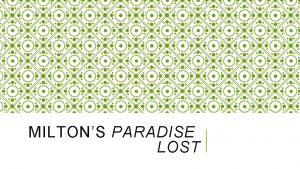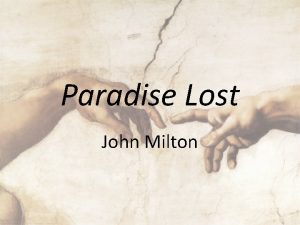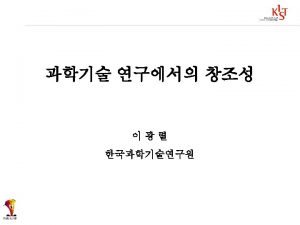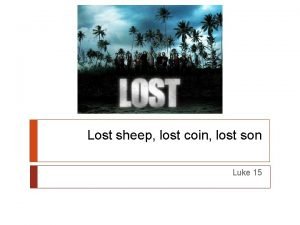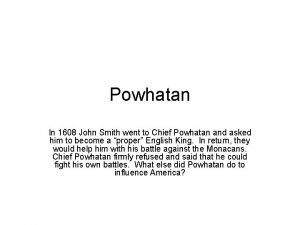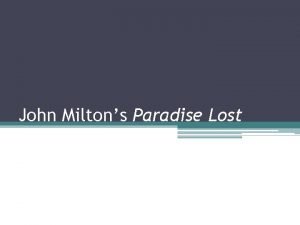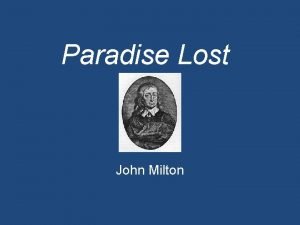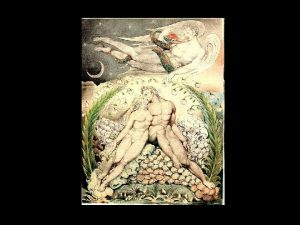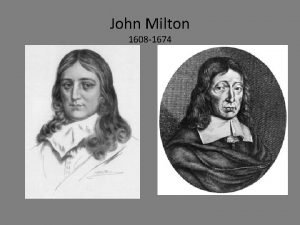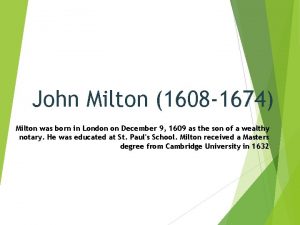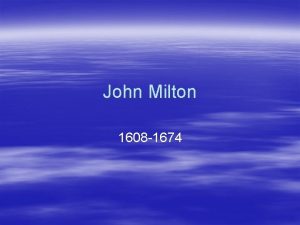John Miltons Paradise Lost John Milton 1608 1674







- Slides: 7

John Milton’s Paradise Lost

John Milton (1608 -1674) • Studied independently for six years in order to become a great poet. • Strong supporter the Puritan Reformation and Parliament rule. • Milton felt it was his duty to support the Civil War and Parliamentary Party against the tyrannical rules of kings like Charles I. • When the Reformation failed and Charles II took power, Milton “retired” and eventually lost his sight. ▫ His daughters helped him write his greatest literary work, Paradise Lost.

Paradise Lost = Epic poem • Characteristics of an epic: • Begins in medias res with an invocation to a muse. • Long, narrative poem. • Characters are usually immortal or of great significance. • Epic hero is the central character. • Contains supernatural creatures who intervene in the tale. • Written in blank verse: unrhymed iambic pentameter. THINK BACK TO BEOWULF AND THE ODYSSEY

Purpose of Paradise Lost • Milton states that his purpose is “to justify the ways of God to men. ” ▫ In other words, Milton’s purpose is to answer the question of why evil and suffering exist if God is in control and good.

Religious Paradise Lost • The events are drawn from the Bible, mostly the book of Genesis. • The epic asserts that Adam and Eve’s disobedience caused evil and suffering to enter the world, not that God created them. • The epic also emphasizes that God purposely let Satan escape from Hell and establish his presence on Earth so that a struggle for goodness to overcome evil would occur.

Satan the Hero • Many readers see Milton’s Satan character as a heroic figure. ▫ His intensity, persuasion, strength, and rebellion against the tyrannical God help to characterize him as the epic’s hero. • Since Milton’s portrayal of Satan as a hero, a noticeable shift has occurred in society’s view of Satan.

Political Paradise Lost • Political allegory of failed Puritan revolution against the monarchy. ▫ Satan leads a revolt against tyrannical God, but fails and is therefore cast out of Heaven and into Hell. • Book I of Paradise Lost begins in Hell after Satan’s fall.

